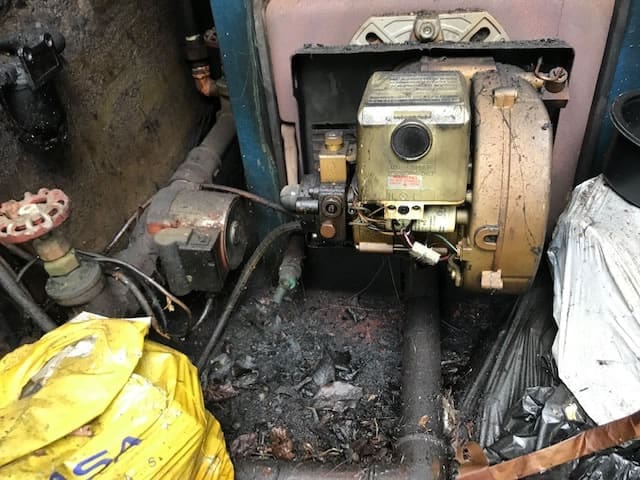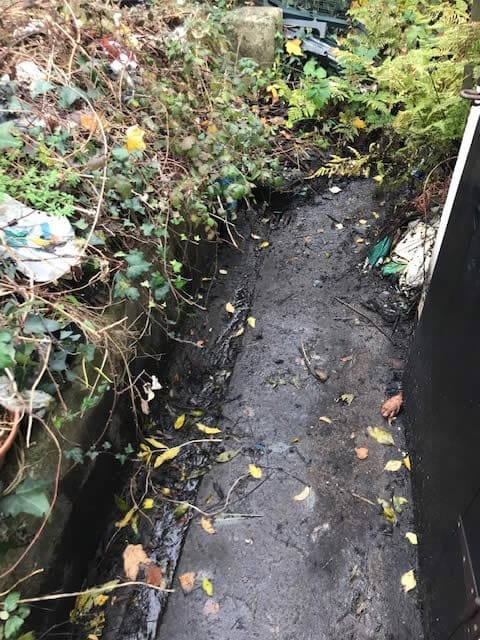At Insurance Claim Solutions, we understand that dealing with insurance claims can often be a daunting process. That’s where we step in as Dublin’s leading loss assessor, offering you comprehensive support and guidance at every stage of your claim.
Dealing with an oil leak in your home can be incredibly stressful. As Ireland’s leading loss assessor, we understand the complexities involved in making an oil leak insurance claim. This guide will help you navigate the claims process and ensure you receive fair compensation for oil leak damage, including oil contamination and associated costs.
Navigating an oil leak insurance claim requires a solid understanding of your rights and responsibilities as a homeowner. The insurance claim process can be complex, but with the right knowledge and support, you can effectively pursue compensation for oil spill cleanup, remediation, and any associated damage. It’s essential to familiarise yourself with the terms of your home insurance policy.


An oil leak refers to the escape of oil from a home heating oil tank or boiler system, leading to potential environmental and property damage. Leaking oil can contaminate soil and even affect neighbouring properties. The consequences of an oil spill can be severe, leading to costly cleanup and remediation efforts. It is important to act promptly upon discovering a heating oil leak.
Oil leak damage can manifest in various ways, including structural damage to your home, soil contamination, and harm to the surrounding environment. Costs associated with oil spills can also include the need for alternative accommodation during remediation. If leaking oil contaminates your property, it’s essential to document the extent of the oil leak damage thoroughly for your insurance claim.
When faced with an oil leak, meticulous documentation is essential. This process includes several important steps:
This will significantly aid your insurance claim.
Filing an insurance claim for an oil leak requires prompt action. Contact your insurance provider immediately to report the incident. Provide them with all the documented evidence, including photos and assessment reports. Complete the necessary claim forms accurately and submit them promptly. Consider engaging claims consultants to navigate the insurance claim process effectively. Remember that each home insurance policy varies.

Understanding what constitutes oil leak damage under your home insurance policy is crucial for maximising your insurance claim payout. Many policyholders are unaware that oil leak coverage varies significantly between policies and may require specific environmental coverage endorsements. Our experienced public loss assessor team helps identify and document all forms of oil leak damage to ensure comprehensive claim coverage.
Our insurance loss assessor team helps identify and document various categories of oil leak damage that property owners commonly overlook:
Heating Oil System Leaks: The most common source of residential oil damage involves leaks from heating oil tanks, pipes, and delivery systems. These leaks can occur in basements, utility rooms, or outdoor tank locations and often go undetected for extended periods, causing extensive contamination.
Underground Oil Tank Leaks: Older properties with underground oil storage tanks face a significant risk of soil and groundwater contamination. These leaks often require extensive excavation and environmental remediation that can cost hundreds of thousands of euros.
Above-Ground Tank Failures: Above-ground oil tanks can develop leaks due to corrosion, impact damage, or component failures. While easier to detect than underground leaks, they can still cause significant property damage and environmental contamination.
Oil Delivery Spills: Accidents during oil delivery, including overfills, hose failures, or driver errors, can cause immediate and extensive oil contamination that requires emergency response and specialised cleanup.
Vehicle and Equipment Leaks: Oil leaks from vehicles, generators, or other equipment on your property can contaminate driveways, parking areas, and surrounding soil, requiring specialised cleanup and potential soil replacement.
Structural Contamination: Oil can penetrate building materials, including concrete, wood, insulation, and drywall, requiring extensive demolition and reconstruction to eliminate contamination and odours.
HVAC System Contamination: Oil vapours can infiltrate heating, ventilation, and air conditioning systems, contaminating ductwork and requiring complete system cleaning or replacement to ensure safe indoor air quality.
Personal Property Damage: Oil contamination can affect furniture, clothing, electronics, and other personal belongings, often requiring specialised cleaning or complete replacement due to persistent odours and contamination.
Don’t let the stress of dealing with insurers and repair contractors overwhelm you. Contact us today, and let us handle your insurance claim while you focus on your recovery.
WhatsApp us